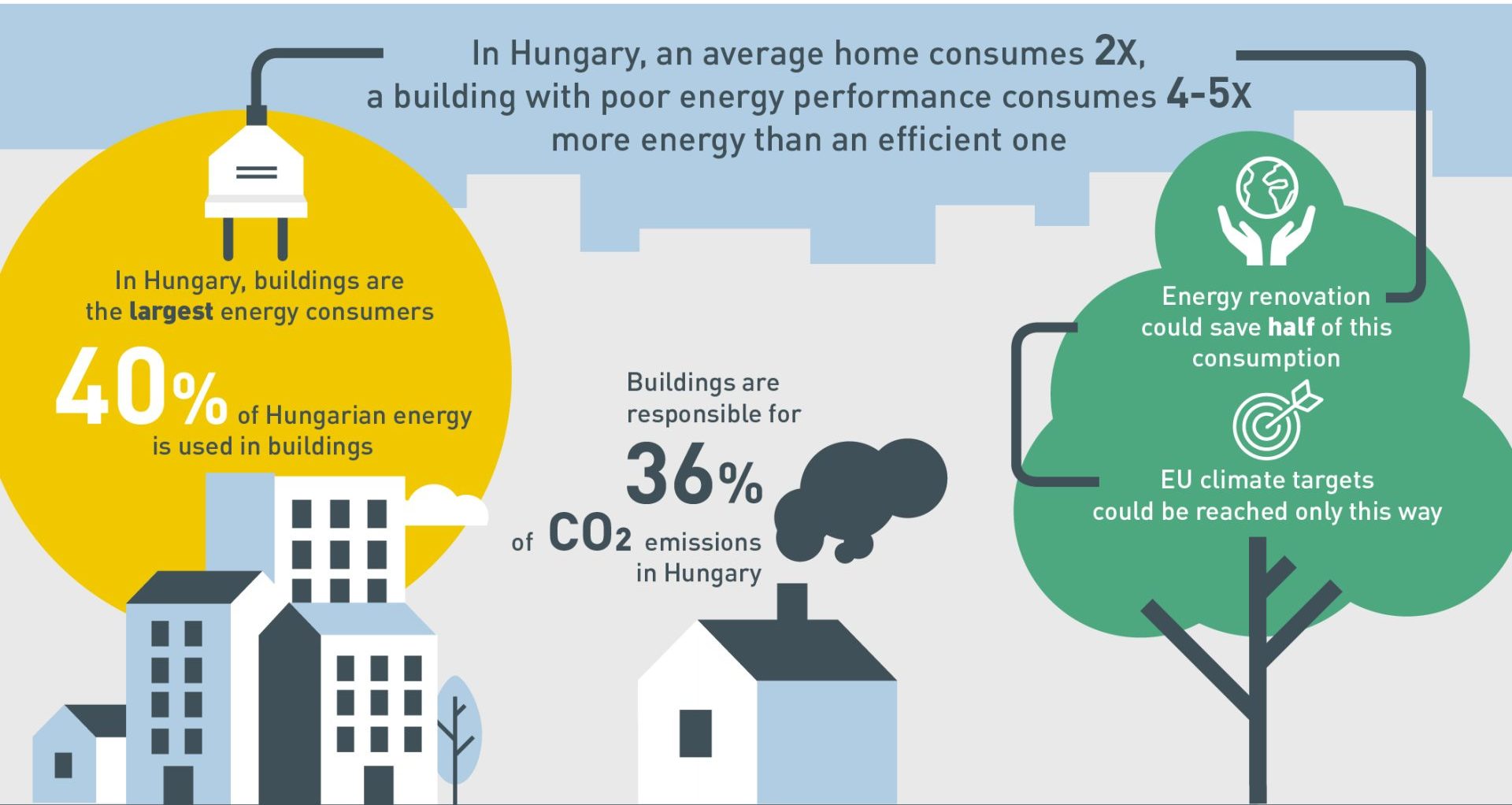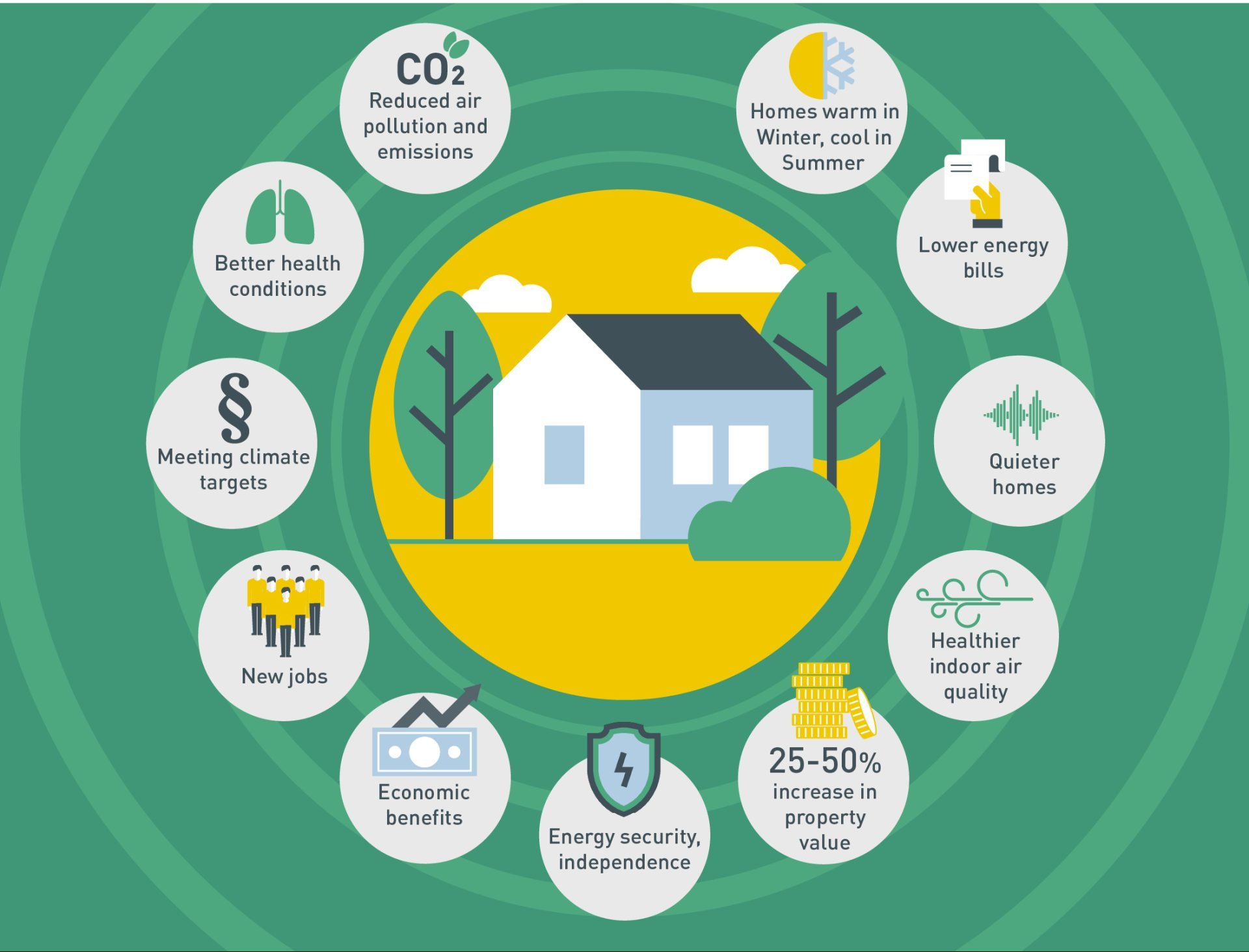Our civilisation runs on energy: we use fossil and renewable energy sources for heating, washing and cleaning, transport, lighting, and electrical appliances. Whatever energy source we use to produce the energy we consume has an environmental impact that we must mitigate. Climate change as well as the collapse of ecosystems shows us that our current energy consumption is beyond our limits and is not sustainable.
Three steps are needed to address these challanges:
- We must consider whether we really need to consume as much and as we do, and also we have to save energy. This is the principle of sufficiency.
- We must use efficient equipment to produce and use energy. This is energy efficiency.
- We must meet our remaining energy needs in the most possible environmentally friendly way through the well-designed and sustainable use of renewable energy sources.
MEHI addresses the second of these three steps, energy efficiency, with a focus on residential buildings. But why is energy efficiency in buildings so important?
ENERGY EFFICIENCY OF BUILDINGS:
WHY IS IT IMPORTANT?

There is now a broad consensus among researchers that energy efficiency is one of the most cost-effective means of achieving climate goals, causing multilpe benefits in addition to energy savings and emission reductions.
The environmental benefits come through reduced energy consumption: reduced air pollution and CO2 emissions, energy savings, more efficient use of resources. Overall, the environmental benefits are reflected in improved health indicators for society. The economic benefits of energy efficiency include increased economic output, employment, innovation and competitiveness, reduced public spending and improved energy security. Benefits at the societal level include positive changes in well-being and health, contributing to poverty reduction and increasing productivity.
MULTIPLE BENEFITS OF ENERGY EFFICIENCY

Household-level improvements due to energy efficiency renovations:
- higher comfort levels: warm home in winter, cool in summer;
- better indoor environment and air quality, healthy homes;
- reduced maintenance costs, housing and energy expenditure;
- better controllable, even programmable, more reliable equipment;
- better energy efficiency increases the real estate value, in case of a family home by 15-20% on average, up to more than 50%.
Socio-economic development through energy efficiency renovations:
- national energy savings, reducing the share of expensive energy imports, reducing energy dependency, increasing security of supply;
- reduced greenhouse gas emissions, which will help meet the national EU targets and save valuable CO2 quotas;
- increase GDP and government revenues;
- employment increases, energy efficiency investments create jobs;
- better health and increased productivity of the workforce reduces the resulting public expenditure;
- air pollution and associated deaths are reduced;
- energy poverty is reduced.
